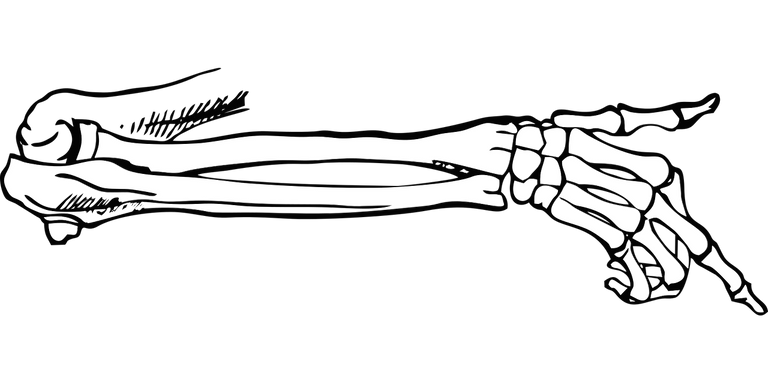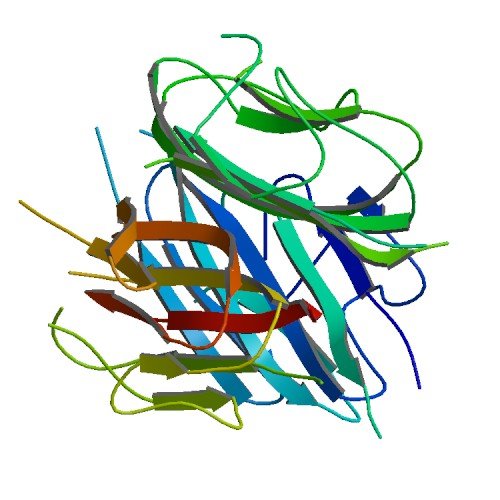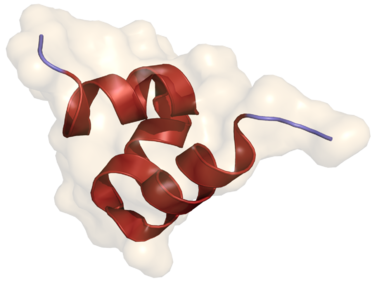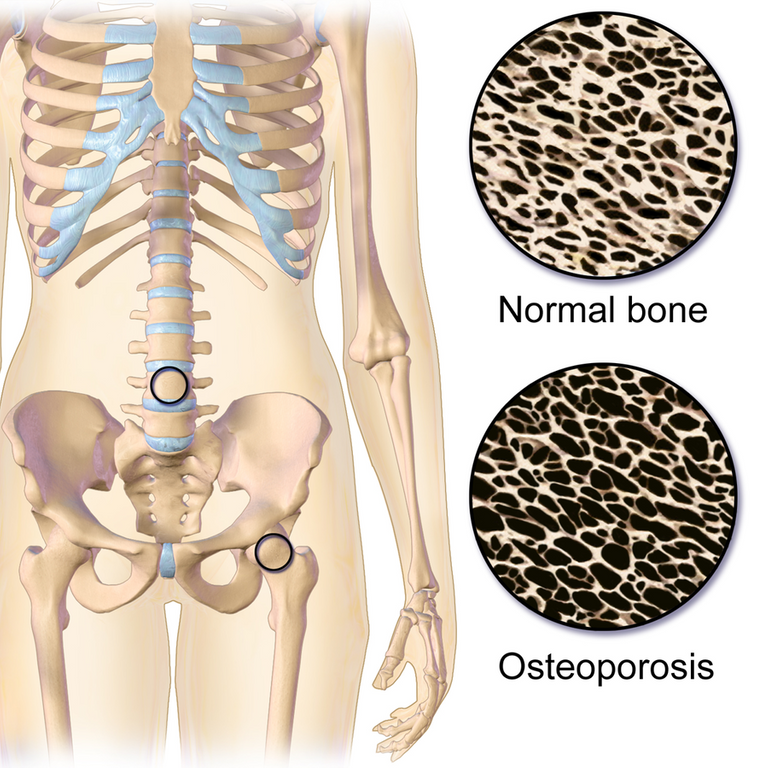Hi buddies!
I took a couple of days off as I wasn't feeling too well! It's great to be writing again and today's blog will be on a topic that I found fascinating while recuperating, and it has to do with bones!
After my bones ached all over from fever, I reasoned that bones must play a more important role in the body system than the two obvious roles. Yes, they protect our organs and provide a point of attachment for our muscles. You may even be aware of some of their other responsibilities, such as the production of blood cells. But then, they're more than simply structural body parts, and they accomplish a lot more than we give them credit for. During my research, I discovered that they aid in the growth and function of our brains, keep males fertile, and even keep us from going hungry.

Source-Pixabay
Bones have recently been shown to be important endocrine organs, which means they create hormones and other chemical signals that our bodies use for things like sexual function and metabolism. It's crucial to remember that the chemicals released by our bones can have an impact on a variety of physiological systems. We can probably learn how to keep people from getting sick and how to keep sick people from getting sicker by figuring out what they do and why they do it.
To begin with, bones have a strong, calcium-rich "skeleton," but they also contain a diverse range of cells. Some, such as adipocytes, store fat or nutrients, while others, known as hematopoietic stem cells, produce platelets and both red and white blood cells, and others, known as bone-specific cells, form and shape bone tissue. Osteoblasts aid in the formation of bone, while osteoclasts degrade it. This delicate balance ensures that neither too much nor too little bone is produced. Not only do these cells communicate with one another, but they also communicate with our bodies.

Illustration of a Osteoblast Cell; Source
Substances in the body, such as the hormone adiponectin, can react to these chemicals and generate their own signals. When our bodies are deprived of energy, fat cells in our bone marrow respond by creating adiponectin. That hormone, among other things, makes our cells more sensitive to insulin, which regulates the quantity of sugar in our blood by helping cells suck more of it out of it.

Adiponectin- A Protein ; Source
Simultaneously, the hormone appears to cause cells in regions like the skeletal muscle to use energy more efficiently. Like most studies, results are still kind of variable, and up in the air so more research needs to be done. Kind of like telling the body that "it's not getting a lot of food and it's time to get efficient".
These body cues can also cause osteoblast cells, or bone-specific cells, to generate a hormone called osteocalcin. This protein stimulates insulin production and increases insulin sensitivity by increasing the amount of sugar taken up by muscle cells. However, insulin is only a small part of our overall metabolism. There are other messengers who inform us when our hunger is satisfied. Yes, we're covered there, too, thanks to osteoblasts! They make lipocalin-2, a protein that can penetrate the blood-brain barrier (BBB, or the barrier that divides the circulatory system from the brain) and protect it from hazardous chemicals and infections. When a protein passes the blood-brain barrier, it inhibits your brain's hunger signal.
Osteocalcin has its fingers in a lot of different pies! Because the protein stimulates testosterone production in the testes' Leydig cells and extends their cellular lifespan, it can help regulate male fertility. More testosterone in the body can help improve the production of neurotransmitters (chemicals that let neurons communicate) and encourage their development in the hippocampus, a key brain region that affects our ability to recall things.

Osteocalcin, also known as bone gamma-carboxyglutamic acid-containing protein (BGLAP); Source
Furthermore, osteocalcin has a more direct effect on the brain, albeit the exact nature of this action is still unknown. It may also aid brain development in the womb, according to mice models. This is because osteocalcin can penetrate the placenta and reach the growing fetus, at least in the case of the parent mouse. There are some evident repercussions in the brain when this hormone is lacking as scientists have discovered that mice lacking osteocalcin have issues with spatial memory and anxiety. Meanwhile, feeding them more of this chemical has cured their anxiety and age-related cognitive deterioration!
Additionally, osteocalcin appears to be involved in the body's stress response. Parts of the parasympathetic nervous system, which is the component of the nervous system that calms things down, appear to be inhibited when osteocalcin is present. In other words, it effectively suppresses the fight-or-flight reaction.
So, it turns out that chemical signals from our bones can be used for a variety of purposes! However, when things go wrong, people might become ill in a variety of ways or have their ailments become more severe. Although more research is needed in this area, it's likely that bone illnesses like osteoporosis can disturb the endocrine system. Worse is, because people on long-term bed rest in the hospital sometimes lose bone mass, it's possible that there will be side effects such as blood sugar problems and an increased risk of other disorders including strokes.

Source
The good news is that recognizing a problem is the first step toward its resolution! It's possible that pharmaceuticals used to treat bone diseases will one day be used to cure disorders elsewhere in the body or to help patients who have been in the hospital for a long time recover more quickly. For example, those who were given bone-forming drugs for osteoporosis had their blood glucose levels decline as a result of the trial.
To wrap up this article, I'm sure we all understand that bones are more than just a framework for the body's excellent parts to rest on. They have a role in a variety of functions, including the production of our blood, regulating how hungry we are, and even impacting our recovery from major sickness! That's quite an achievement for something I used to think of as only a framework for supporting the body's vital organs.
Sources:
Bone Marrow Adipose Tissue Is an Endocrine Organ that Contributes to Increased Circulating Adiponectin during Caloric Restriction
Adiponectin and Energy Homeostasis
Mediation of the Acute Stress Response by the Skeleton
Paracrine and endocrine actions of bone—the functions of secretory proteins from osteoblasts, osteocytes, and osteoclasts
Characterizing bone marrow adipocytes
Bone Structure
Bone function, dysfunction and its role in diseases including critical illness
Hematopoietic Stem Cells
Posted from HypeTurf





